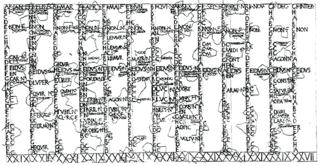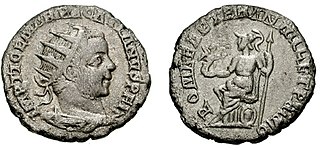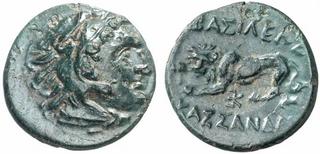| Millennium: | 1st millennium BC |
|---|---|
| Centuries: | |
| Decades: | |
| Years: |
| 318 BC by topic |
| Politics |
|---|
| Categories |
| Gregorian calendar | 318 BC CCCXVII BC |
| Ab urbe condita | 436 |
| Ancient Egypt era | XXXIII dynasty, 6 |
| - Pharaoh | Ptolemy I Soter, 6 |
| Ancient Greek era | 115th Olympiad, year 3 |
| Assyrian calendar | 4433 |
| Balinese saka calendar | N/A |
| Bengali calendar | −910 |
| Berber calendar | 633 |
| Buddhist calendar | 227 |
| Burmese calendar | −955 |
| Byzantine calendar | 5191–5192 |
| Chinese calendar | 壬寅年 (Water Tiger) 2379 or 2319 — to — 癸卯年 (Water Rabbit) 2380 or 2320 |
| Coptic calendar | −601 – −600 |
| Discordian calendar | 849 |
| Ethiopian calendar | −325 – −324 |
| Hebrew calendar | 3443–3444 |
| Hindu calendars | |
| - Vikram Samvat | −261 – −260 |
| - Shaka Samvat | N/A |
| - Kali Yuga | 2783–2784 |
| Holocene calendar | 9683 |
| Iranian calendar | 939 BP – 938 BP |
| Islamic calendar | 968 BH – 967 BH |
| Javanese calendar | N/A |
| Julian calendar | N/A |
| Korean calendar | 2016 |
| Minguo calendar | 2229 before ROC 民前2229年 |
| Nanakshahi calendar | −1785 |
| Thai solar calendar | 225–226 |
| Tibetan calendar | 阳水虎年 (male Water-Tiger) −191 or −572 or −1344 — to — 阴水兔年 (female Water-Rabbit) −190 or −571 or −1343 |
Year 318 BC was a year of the pre-Julian Roman calendar. At the time, it was known as the Year of the Consulship of Flaccinator and Venno (or, less frequently, year 436 Ab urbe condita ). The denomination 318 BC for this year has been used since the early medieval period, when the Anno Domini calendar era became the prevalent method in Europe for naming years.

The Roman calendar was the calendar used by the Roman kingdom and republic. The term often includes the Julian calendar established by the reforms of the dictator Julius Caesar and emperor Augustus in the late 1st century BC and sometimes includes any system dated by inclusive counting towards months' kalends, nones, and ides in the Roman manner. The term usually excludes the Alexandrian calendar of Roman Egypt, which continued the unique months of that land's former calendar; the Byzantine calendar of the later Roman Empire, which usually dated the Roman months in the simple count of the ancient Greek calendars; and the Gregorian calendar, which refined the Julian system to bring it into still closer alignment with the solar year and is the basis of the current international standard.

Ab urbe condita, or Anno urbis conditæ, often abbreviated as AUC in either case, is a convention that was used in antiquity and by classical historians to refer to a given year in Ancient Rome. Ab urbe condita literally means "from the founding of the City," while anno urbis conditæ means "in the year since the City's founding." Therefore, the traditional year of the foundation of Rome, 753 BC, would be written AUC 1, while AD 1 would be AUC 754. The foundation of the Empire in 27 BC would be AUC 727.

The terms anno Domini (AD) and before Christ (BC) are used to label or number years in the Julian and Gregorian calendars. The term anno Domini is Medieval Latin and means "in the year of the Lord", but is often presented using "our Lord" instead of "the Lord", taken from the full original phrase "anno Domini nostri Jesu Christi", which translates to "in the year of our Lord Jesus Christ".














